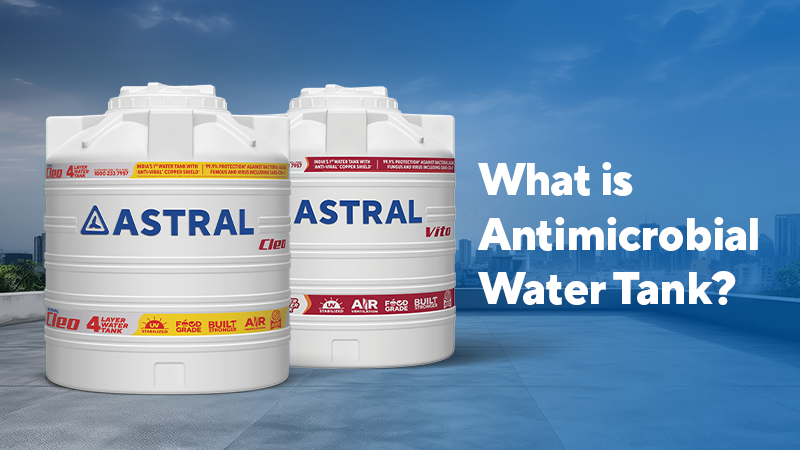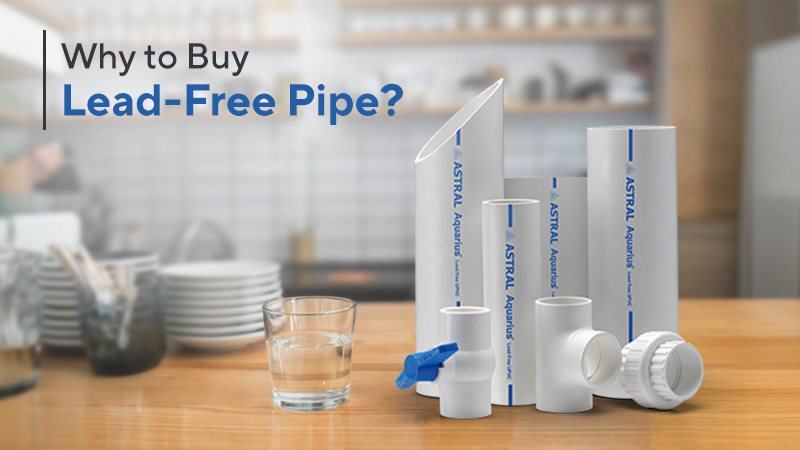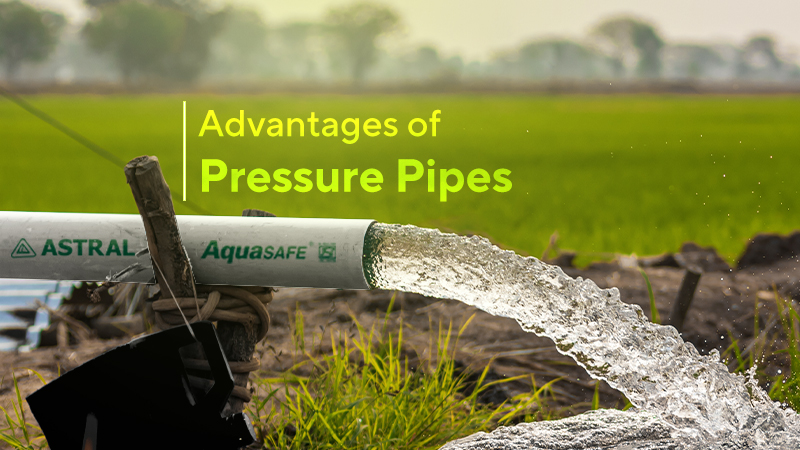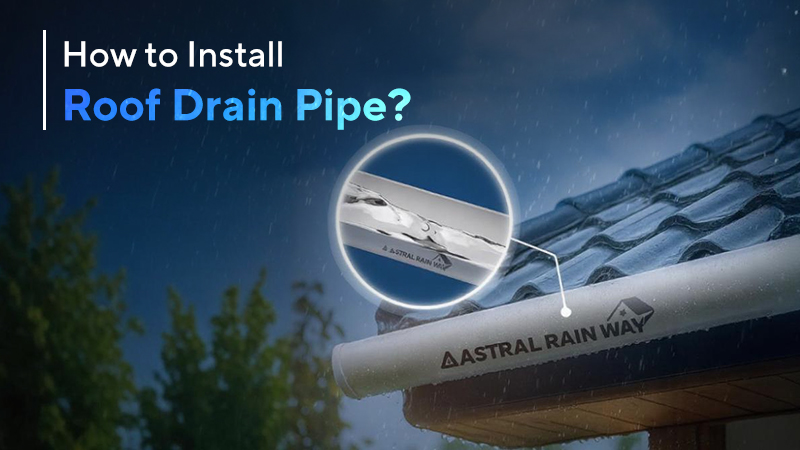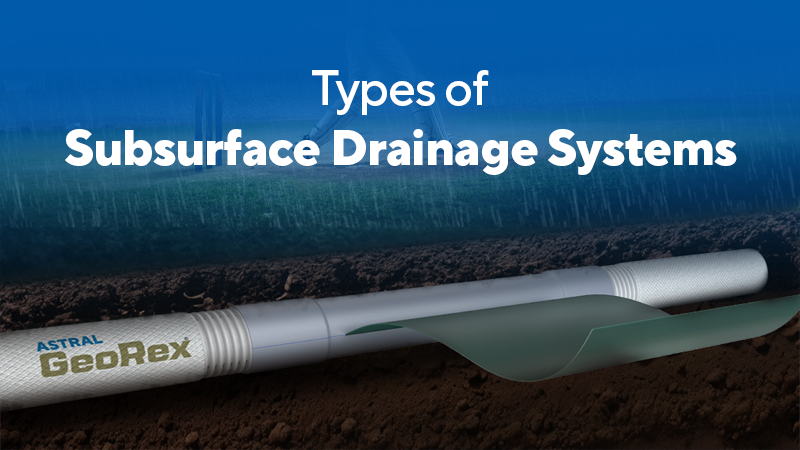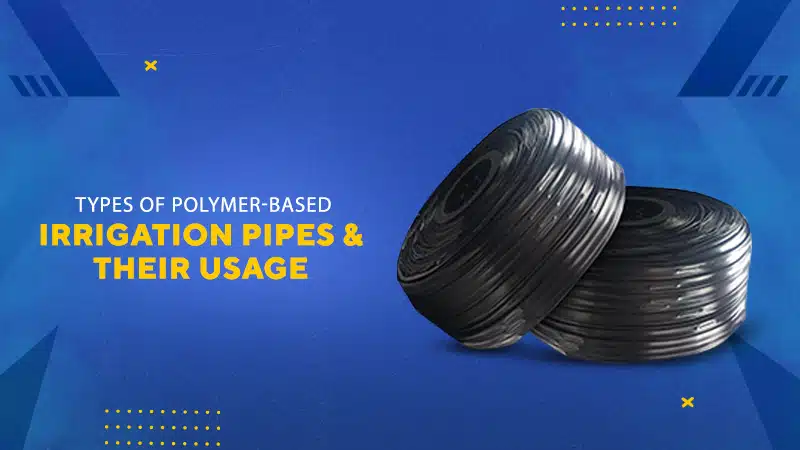
21 Feb 2024
Types of Polymer based Irrigation Pipes and Their Usage
Polymer-based irrigation pipes have become increasingly popular in agriculture due to their durability, flexibility, and resistance to corrosion. These pipes are produced from several polymer kinds and have unique characteristics that make them appropriate for specific applications.
Here are the five common types of irrigation pipes and their usage:
High-Density Polyethylene (HDPE) pipes
HDPE pipes are durable, flexible, and UV and chemical resistant. They are frequently used in irrigation systems, such as drip and surface irrigation, due to their ability to deal with high pressures and challenging soil conditions. HDPE pipes are also used in other industries for fluid transportation due to their durability and chemical resistance. They are made from a thermoplastic polymer that is known for its strength and can be easily installed in long lengths, making them ideal for use in large-scale projects.
Low-Density Polyethylene (LDPE) Pipes
LDPE pipes are portable, adaptable, and simple to handle. Small gardens and nurseries frequently utilise them since they are appropriate for low-pressure applications like drip irrigation. LDPE pipes are also suitable for surface irrigation, but they are not recommended for high-pressure applications.
Using drip irrigation pipes can help minimise water waste and provide water directly to the plant roots, making it an ideal irrigation technique for small gardens and nurseries. Because of their flexibility, light weight, and ability to tolerate low-pressure applications, LDPE pipes are frequently used in drip irrigation.
PVC (polyvinyl chloride) pipes
Irrigation systems frequently employ PVC pipes for agriculture, a kind of plastic pipe. In addition to being corrosion- and chemical-resistant, they are lightweight and simple to install. PVC pipes are available in a range of sizes and can be used in both pressurised and non-pressurised applications.
Polypropylene (PP) pipes
PP pipes are lightweight, flexible, and easy to handle. They have excellent chemical resistance, making them suitable for use in acidic and alkaline soil conditions. They are commonly used for drip irrigation, an efficient irrigation system that minimises water wastage and delivers water directly to the plant roots, but are not recommended for high-pressure applications.
Cross-linked Polyethylene (PEX) pipes
Often seen in irrigation systems, PEX pipes are a kind of polymer-based pipe. They can withstand extreme temperatures and chemicals, and they are flexible and strong. For both pressurised and non-pressurised applications, PEX pipes are available in a range of sizes. In irrigation systems for greenhouses and hydroponic gardening, they are frequently employed.
In summary, the type of polymer-based irrigation pipe chosen will depend on the particular application, soil composition, and environmental factors. The most widely used irrigation pipes are HDPE pipes because they can sustain high pressure applications and are suited for all soil types. LDPE pipes are frequently used in tiny gardens and nurseries because they are appropriate for low-pressure uses like drip watering. Sprinkler systems and surface irrigation frequently employ PVC pipes because they are appropriate for high-pressure applications. PP pipes are frequently used in drip irrigation and are excellent for both acidic and alkaline soil conditions. PEX pipes are appropriate for hot water systems and are frequently used in hydroponic farming and greenhouse irrigation systems.
At Astral, we offer a range of polymer-based irrigation pipes that are designed for efficient water distribution in agriculture and landscaping. These pipes are made from high-quality plastic polymers such as polyethylene (PE) and polypropylene (PP), and they are available in different sizes and shapes to suit different irrigation needs. Also, read our blog on How to Choose the Right Pipes for Safe and Clean Potable Water.


